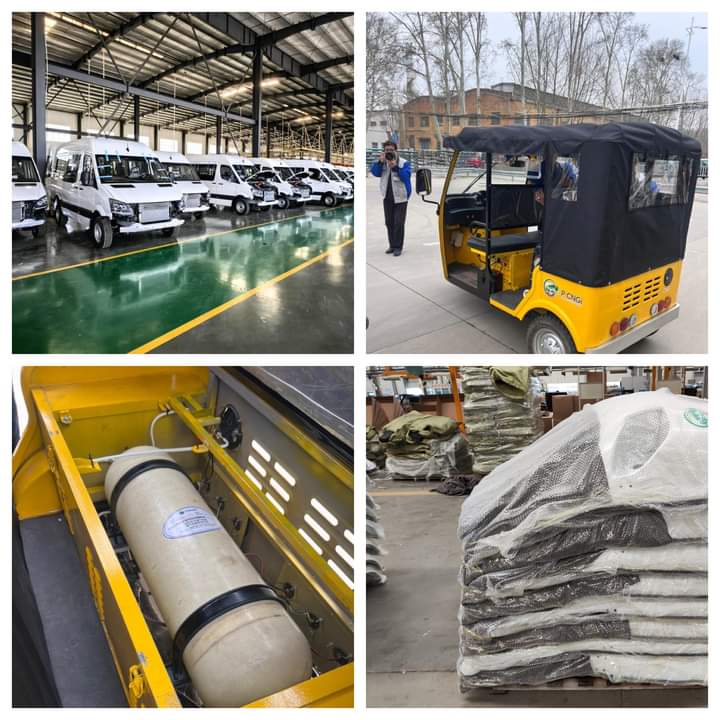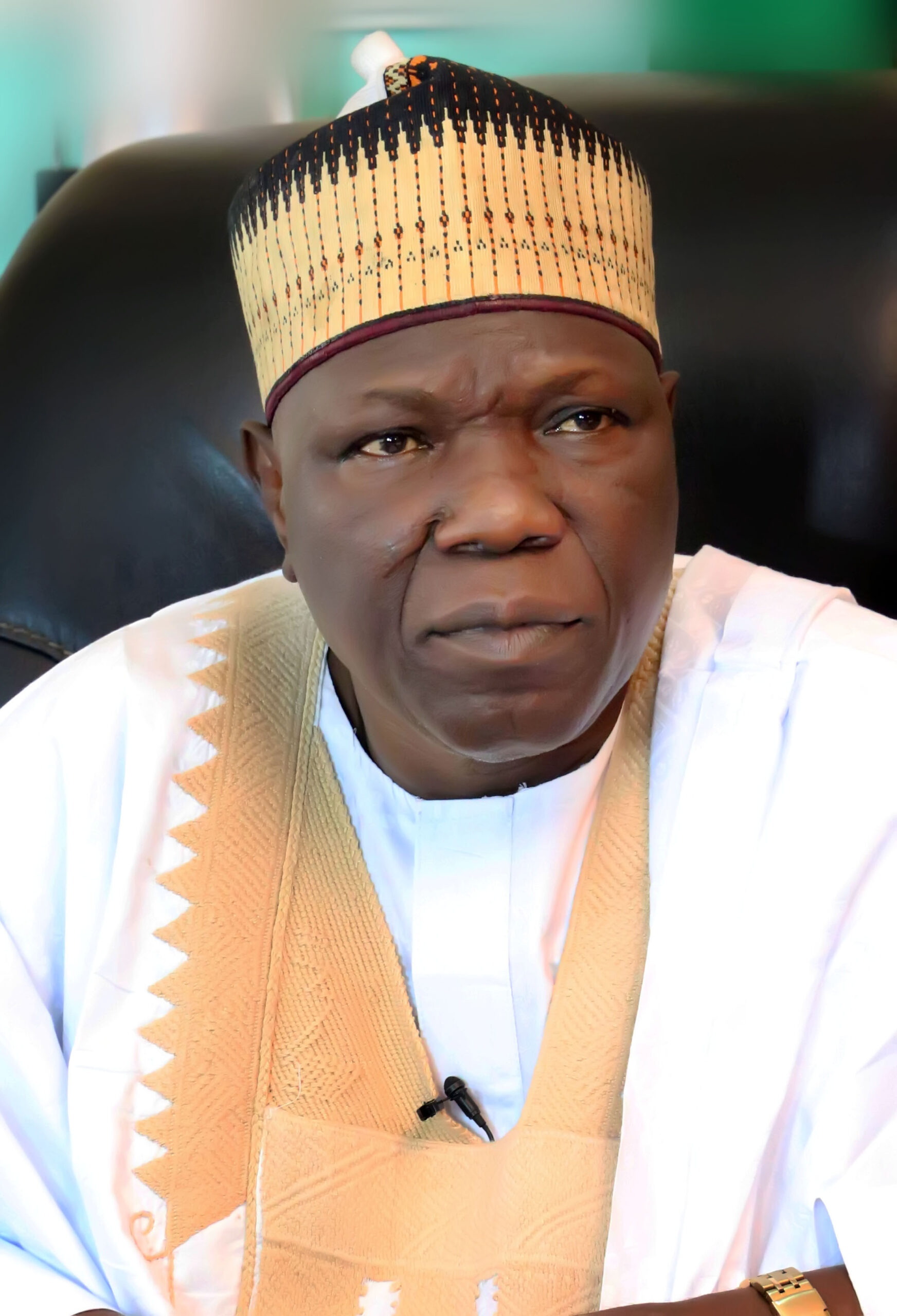Auto
How long should vehicle tyres last?

A new test by Consumer Report has shown that family-car tyres can last at least 70,000 miles or 112,654 kilometres.
Ultra-high-performance tyres are generally found to wear quicker. In fact, some tested UHP tyres indicate they will last to just 25,000 to 30,000 miles or 40,233 to 48,280km. To make matters worse, most summer tyres don’t even carry warranties.
There is no definitive answer as to how long a vehicle’s tyres should last, but it is recommended that people should always replace the tyres once they are 10 years old, depending on the terrain.
Indeed, the advice for how many kilometres your tyres last varies widely from 10,000 to 50,000 kilometres.
The lifespan of your tyres will vary depending on a number of factors, according to a report by carnextdoor.com.
It lists the factors as your driving habits (highway vs stop-start city driving); the climate; the design of the tyre road condition; how well you maintain your tyres.
Even if your tyres look like they’re in good condition, it’s recommended you replace them after ten years from their manufacture date. This includes spare tyres. Even if you think your tyres could last a little longer, it’s better to be safe than being sorry.
Get your tyres checked every year after five years
Regardless of how far you drive, once your tyres are five years old you should get them checked yearly. After five years a tyre will begin to deteriorate, as it dries out and the rubber loses its suppleness.
This happens whether you drive a lot or very little, and also affects your spare tyre. Your mechanic should check your tyres as part of your regular service, or you can get them checked at a tyre shop. Many tyre shop offer a free tyre health check.
Eight easy ways to increase your tyre’s lifespan
There are some easy ways to check your tyre’s condition, as well as some simple steps to lengthen their lifespan so you can save money on tyre replacements.
- Always check your tyre tread
What is tyre tread and why does it matter?
Tyre tread is the rubber on the tyre that makes contact with the road or ground. The grooves on your tyres is the tread pattern.
The tyre tread is the raised section that touches the ground when you drive.
As a tyre ages and wears down, the tread is worn off. This reduces its effectiveness and safety. The grooves in the tread are specially designed to keep you safe in a range of driving conditions. In fact, there are a variety of different tread patterns for this reason: some patterns are optimised for driving on snow, or to reduce noise or increase grip.
The grooves in tyres also allow water to be expelled to prevent hydroplaning. If the depth of the grooves wear down too far, your tyres can’t expel all the water they encounter. This creates a thin barrier of water between the tyre and the ground, causing the car to skid across the wet road.
How to check your tyre tread
Check your car tyre tread with a coin
An easy way to check your tread pattern is to put a coin into the groove to see how deep it is. If you stick a coin in and the tread isn’t touching the platypus’ bill, it’s too shallow.
You can also check by running your hand over the tread and making sure you can feel all the grooves. If you aren’t sure, take your car to a tyre shop for a checkup.
Look for a tread wear indicator on your tyre, usually marked by a triangle on the sidewall of the tyre.
Inside one of the grooves in line with that triangle, you will see or feel a raised section which indicates the minimum depth of the tread. If the rest of the tyre is level with this raised section, your tyre is due for replacement.
- Keep your tyres of out the sun
Park your car away from direct sunlight. This will minimise the damaging effects of UV rays on the rubber. If you don’t have an indoor parking spot, try to park in a shady area.
- Swap your tyres around
Check that each tyre is wearing at a similar rate. To keep your tyres wearing evenly, rotate them regularly – including the spare if it’s a full sized tyre – so that the front tyres are placed on the rear of the car and vice versa. You should do this every service or every 10,000 kilometres. Your front tyres will wear more quickly because of the position of the steering, so it’s important to rotate them regularly to spread the wear evenly.
- Get your wheels aligned
Your wheel alignment will affect how long your tyres should last, and the way your car handles. Your mechanic should do this as part of your regular service, but if you’re concerned that your wheel alignment is off, take it in to the mechanic or tyre shop for a check and re-alignment.
- Don’t be a stuntman
This should be obvious, but drive carefully. Don’t be aggressive cornering, burnouts and hard braking will all wear your tyres down quickly (not to mention the safety concerns).
- Watch your speed!
Aside from the safety and legal issues, higher heat generated from high speeds wears tyres prematurely.
- Keep your car clean
The heavier your car, the more pressure you are putting on your tyres, so don’t overload it by driving around with a boot full of junk. Make sure to remove any heavy items you don’t need in your car.
- Keep your tyres inflated to the correct PSI
It’s easy to find your tyre’s correct correct operating pressure, usually measured in pounds per square inch (PSI). Check inside the driver’s door: there should be a placard there that will show the front and rear tyre pressure recommendations. Depending on the car, these may be different. If the placard isn’t in the driver’s side door frame, look inside the fuel door, the glove box or your car’s manual.
Check your tyre’s current pressure by heading to a petrol station with a tyre inflation service. Many of them offer it for free. Attach the hose to the valve on each of your rims and the machine will do the rest of the work. Depending on the machine, you can either set the PSI you want, or manually fill it. Aim to check your car’s tyre pressure monthly.
Auto
FG to roll out 200 CNG buses, 2,500 tricycles next month

FG to roll out 200 CNG buses, 2,500 tricycles next month
- Targets one million automobiles
The Federal Government says it will unveil its first set of Compressed Natural Gas (CNG) vehicles and tricycles for mass transit next month (May 2024), as part of activities to mark President Bola Tinubu’s one year in office.
Special Adviser to the President on Information and Strategy, Bayo Onanuga, in a statement on Sunday said 200 buses and 2,500 tricycles powered by CNG would be unveiled.
He said the buses and tricycles would be rolled out with a set target of one million CNG-powered automobiles by 2027.
He said the committee led by Michael Oluwagbemi was set to deliver cheaper, safer and more climate-friendly energy vehicles.
Onanuga said the committee had fulfilled some foundational reforms to enable the new CNG and electric vehicles to deliver the future Tinubu promised.
He added that all was ready for delivery of the first set of critical assets for deployment and launch of the vehicles ahead of the first anniversary of the Tinubu administration on May 29.
Onanuga also said, “In collaboration with the private sector, the PCNGI is set to deliver 100 conversion workshops and 60 refuelling sites spread across 18 states before the end of this year.”
The Federal Government provided N100 billion, as part of the N500 billion palliative budget, to purchase 5,500 CNG vehicles, being part of the many intervention programmes to cushion the effect of increase in petrol pump price on the masses.
This included buses and tricycles, 100 electric buses and over 20,000 CNG conversion kits, with the development of CNG refilling stations and electric charging stations.
Onanuga said with necessary tax and duty waivers approved by Tinubu in December 2023, the private sector partners in the Presidential CNG Initiative (PCNGI) had responded with over $50 million investments in refuelling stations and conversion centres
He stated, “Also, a safety policy document on 80 standards and regulations that must be strictly adhered to by operators has been developed and approved to ensure CNG conversions are done safely and reliably.
“The deployment of CNG buses and tricycles and the vision to get at least one million natural gas propelled vehicles on our roads by 2027 will mark a major energy transition in our country’s transportation industry.
Onanuga also said, “Four plants owned by JET, Mikano, Mojo, and Brilliant EV located in various parts of the country are involved in the assembly of the Semi Knocked Down (SKD) components of the CNG buses.
“JET, which has received the SKD parts, is coupling the buses in Lagos and is working towards delivering 200 units before the first anniversary of the Tinubu administration.
“Brilliant EV will assemble electric vehicles. It is awaiting the SKD parts, which will arrive in due course. The electric vehicles it will produce are meant for states, such as Kano and Borno, which do not have access to CNG for now.
“They will also be available in key Nigerian cities and university campuses.
“It must be noted that soon to be completed gas pipeline projects initiated by the Buhari administration and being completed by NNPCL (the AKK Pipeline) will take gas into the hinterlands of North-East and North-West where there is current paucity.”
He said over 600 buses were targeted for production in the first phase this year while a new plant on the Lagos-Ibadan Expressway would assemble thousands of tricycles.
“The SKD parts manufactured by the Chinese company LUOJIA in partnership with its local partner to support the consortium of local suppliers of CNG tricycles are set for shipment to Nigeria and expected to arrive early in May. About 2,500 of the tricycles will be ready before May 29, 2024.
“Thousands of conversion kits for petrol powered buses and taxis that want to migrate to CNG are also ready with CNG cylinders.
“The Federal government intends to provide them at subsidised rates, especially to commercial vehicle drivers to bring down the cost of public transportation.”
As part of private sector collaboration, NIPCO and BOVAS are involved in offering refilling services for the CNG vehicles and also serving as conversion centres.
NIPCO is setting up 32 stations nationwide to offer the services. The company has completed the set-up of four of the CNG stations.
“Likewise, BOVAS is setting up eight stations in Ibadan, two each in Ekiti, Abuja and four in Ilorin.
“MRS is also involved. It is making efforts to announce where its refilling stations and conversion centres will be,” Onanuga added.
He also said NNPC Limited, which had launched an on-and-off CNG initiative in the past, was joining the new initiative and expected to announce the locations for CNG refilling and CNG conversion centres nationwide.
The statement said PCNGI was working with 22 other agency-partners, including the Standards Organisation of Nigeria (SON) and National Automotive Design and Development Council, to deliver 80 Natural Gas Vehicle Conversion and Associated Appliances Standards for the country.
He added that the vision of the President to deliver one million gas vehicles could not be possible without the private sector, including the RTEAN, NURTW and players in the downstream sector of the transportation chain and financiers.
Auto
We expect massive roll-outs of Nigeria-made cars by December 2024 – Minister

We expect massive roll-outs of Nigeria-made cars by December 2024 – Minister
Nigeria now has the capacity and materials to manufacture made-in-Nigeria cars for local use and export, the Federal Government has said.
Minister of Industry, Trade and Investment, Dr Doris Uzoka-Anite, stated this at the Automotive Component Manufacturers meeting in Abuja.
She said local manufacturers should be be held responsible if they fail to deliver massively Nigeria-made cars at the end of this year.
The minister said notwithstanding challenges facing the nation’s automobile industry, with the enabling environment being provided by the government, manufacturers should be held responsible if the cars are not rolling out by December 2024.
Newstrends reports a total of 37 firms were licensed automobile manufacturers/assemblers in Nigeria as of March 2023.
This figure is contained in the NADDC Updated List of the Accredited Locally Manufactured Brand in Nigeria.
Nigeria is said to currently produce less than 10 per cent of the 400,000 vehicles being used in the country.
The minister said, “As far as we are concerned, the auto industry is now set to go. We are counting on all stakeholders to make that happen.
“If we do not produce made-in-Nigeria cars before the end of this year (December), it will be your fault, because I am sitting down here giving you all the assurances that this administration has created the enabling environment to make sure that the auto policy kicks off.”
A statement by the ministry’s Director of Information and Public Relations, Adebayo Thomas, said the minister emphasised the need for collaboration among manufacturers, dealers, regulatory bodies and other players in the automobile industry.
She stressed that by working together, they could address challenges, streamline processes and drive innovation.
Even as she emphasised the need for local content, she urged stakeholders to maintain high-quality standards in vehicle manufacturing, safety features, emissions control and after-sale services.
This, she said, would boost consumer confidence and attract investment.

Auto
Ore extols ex-NURTW President Yasin’s virtues at 68

Ore extols ex-NURTW President Yasin’s virtues at 68
Acting President of the National Union of Road Transport Workers (NURTW), Alhaji Aliyu Issa Ore, has described the former president of the union, Alhaji Najeem Usman Yasin, as a trade unionist per excellence with worthy administrative experience.
He stated this in his goodwill message on the 68th birthday of Alhaji Yasin
Ore, a former chairman of the Kwara State council of the union, said the achievements he recorded while in Kwara were as a result of quality advice and guidance from Yasin.
Ore explained that Yasin’s tenure as president of the union witnessed tremendous development and growth of the NURTW.
“His tenure as president of the union recorded first-class growth.
“He took the union to the global stage. For the first time, our union became a strong member of International Transport Federation (ITF).
“Apart from getting international recognition, he also built zonal council offices for all the zones. Before he came in, our zonal councils usually operated from rented apartment but his administration acquired land and built befitting zonal offices for all our zonal councils.
“Again, Alhaji Yasin ensured that the national headquarters of the union assisted many state councils to build their own councils secretariat. Through his guidance, most state councils now operate from their own state councils.”
He recalled the peace enjoyed by members of the union under Yasin, saying this ensured that the body had perfect transition arrangements devoid of thuggery and shedding of blood.
“Before he came into office, our election or change of leadership was usually bloody. But he put a system in place that put an end to thuggery and other violence in the union,” he said.
Ore also said Yasin’s tenure boosted the education of members and workers by ensuring that the union secured partnership with National Open University of Nigeria (NOUN) which enabled members to acquire university education.
“Members of staff also enjoyed opportunities to go for training and workshops to boost their knowledge,” Ore stated.
He prayed that Almighty Allah would continue to preserve him to witness more years in good health.

-

 Education4 days ago
Education4 days agoWhy we charge N42m fees for primary school pupils — Charterhouse Lagos
-

 Auto4 days ago
Auto4 days agoWe expect massive roll-outs of Nigeria-made cars by December 2024 – Minister
-

 News5 days ago
News5 days agoUpdated: More trouble for Yahaya Bello as Immigration places him on watch list
-

 metro7 days ago
metro7 days agoEdo court sentences three to death by hanging for kidnapping, murder
-

 International5 days ago
International5 days agoUpdated: Tragedy hits Kenya, Defence chief, nine others die in military helicopter crash
-

 metro4 days ago
metro4 days agoJUST IN : Borrow pit collapses, kills seven Qur’anic school pupils
-

 News3 days ago
News3 days agoWe’re not part of Yoruba Nation agitation, says MKO Abiola family
-

 metro2 days ago
metro2 days agoHow gunmen killed Babcock university lecturer, abducted two – Police










